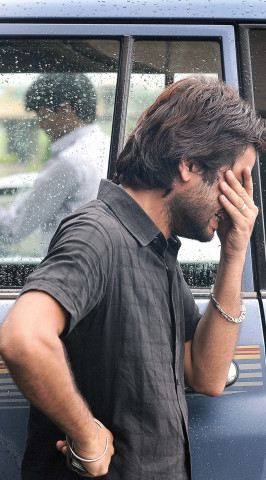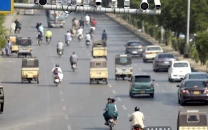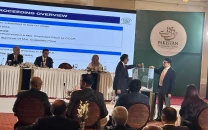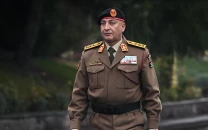Protecting employees in a dangerous world
Being a multi-billionaire dollar business tycoon is not an easy job.

Even though Pakistani laws do not compel organisations to compensate victims of terrorism they feel obliged to act in times of crisis. But how? In the absence of a formal framework the question of what the right thing to do is not an easy one to answer. Companies like news organisations, hotels, private security firms and even fast food outlets find themselves dealing with the impending threat of terrorism on a daily basis. Earlier this week unidentified terrorists attacked the Shezan food factory in Lahore, injuring four people and causing damage to the building. One hundred employees were present at the time of the blast.
Thus, despite extensive precautionary measures employees can become victims leaving the company with the unpleasant decision of what to do next. With over 3,000 terror related deaths in 2009 in Pakistan alone the choice is an expensive one.
The injury, death, and destruction caused by the 9/11 terrorist attacks posed an enormous challenge for the US compensation system. Insured losses alone, over $32 billion, were 30 times greater than the largest previous insured losses from a terrorist attack (the London bombing of 1993). While securing stand alone accidental death and dismemberment insurance for employees in high risk jobs is one way to provide security most local companies have chosen to deal with situations on their own.
Sadruddin Hashwani, Chairman of the Hashoo Group made up his mind on what needed to be done as soon as he received a call on September 20, 2008 telling him that one of his hotels had been attacked. Within four days the Sahara Fund was created to rehabilitate not only employees but all victims of the blast on Islamabad Marriott Hotel, where 56 were killed and 260 injured. According to Sarah Hashwani, chairman of the Hashoo Foundation, which has contributed almost Rs13 million to victims so far, it is important to help families rebuild their lives consistently. “It is not enough to hand over a check for three months salary to a widow and send her off,” she says.
The difference between paying a bereavement sum to an employee’s family and creating a long running fund is one that indirect victims of terrorism like Essa Khankhel feel every day. His brother Moosa, a respected journalist, was killed in the line of duty in February 2009. However, the Rs1 million that the Jang group sent him is now long gone. Essa finds himself among hundreds of financially vulnerable victims of terrorism after he spent a few hundred thousand on the reconstruction of the family home in Swat and the rest on medical bills of Noor, his younger brother. “I emailed the management asking if they could make an exception in company policy which only covers medical expenses of spouses and children but I did not receive a reply,” he says.
Essa’s predicament raises an important question. Should victims of terrorist attacks receive greater benefits than victims of other crimes and adverse events, and, if so, how should the responsibility for providing compensation be split between individuals and the government? A fixed, flat amount of government compensation, for example, would place responsibility on high-income earners to purchase life insurance to cover losses above those covered by the government. Unfortunately, receiving government compensation can be a complicated and bureaucratic process that can add to the emotional trauma of the loss of a loved one and amplified by the survivors fear that they will not be able to food on the table.
According to a US Congre-ssional Research Service report titled ‘Terrorism: the new occupational hazard’ mental problems stemming from terror related incidents at work may also bring eligibility for compensation. This is why the $22 billion Tata group, which includes 96 companies manufacturing a range of products from automobiles to watches, steel to fertilisers recognised the need for emotional counselling and reportedly provided psychological assistance to all victims of the Taj Hotel terror attack including betelnut vendors whose carts were destroyed in the ensuing panic. Ratan Tata also assigned ‘mentors’ to help counsel families of victims through the crisis. But the primary source of aid remains a fund established twenty days after the attacks, the Taj Public Service Welfare Trust. The reason companies prefer to create funds is because they can continue to function independently for long periods of time without impacting other areas of the business says Sarah Hashwani.
The Congressional report states that a huge part of corporate responsibility lies in creating emergency management systems to guarantee that when an attack occurs administrative safety nets exist to protect employees so that they are not left to suffer a financial crisis on top of a personal one.
Published in The Express Tribune, June, 28th, 2010.



















COMMENTS
Comments are moderated and generally will be posted if they are on-topic and not abusive.
For more information, please see our Comments FAQ